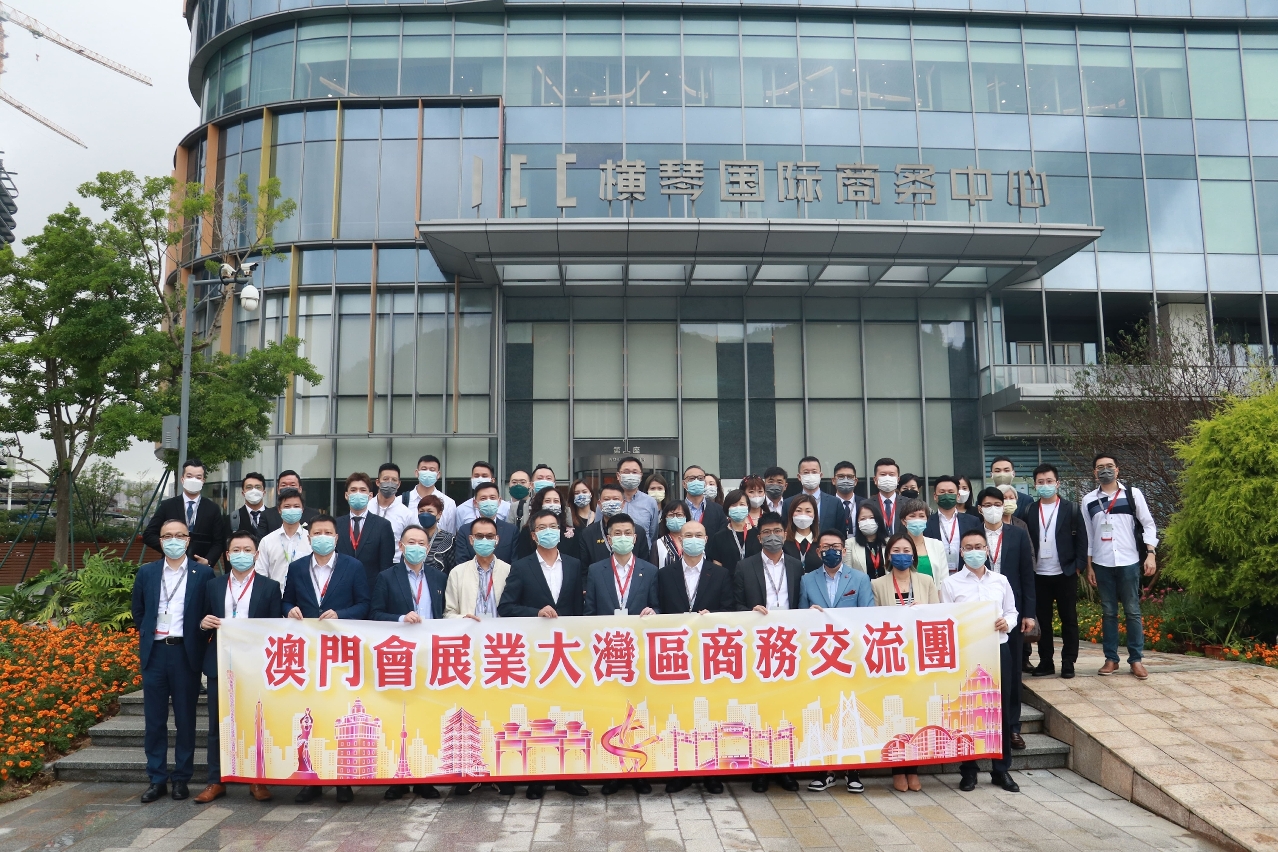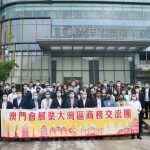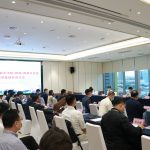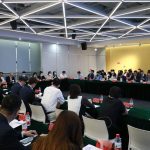 Macao Delegation visits the Zhuhai Industry Association
Macao Delegation visits the Zhuhai Industry Association
In order to strengthen the exchange and co-operation among cities of the Guangdong-Hong Kong-Macao Greater Bay Area, Macao Trade and Investment Promotion Institute (IPIM) organised the "Macao MICE Industry Business Delegation to the Greater Bay Area (Zhuhai)" with 46 representatives from the MICE industry and the business sector to visit enterprises and associations in the fields of big health industry, financial development and technology innovation in Zhuhai on 27 May. They delegation was able to publicise Macao MICE industry’s advantages explored further co-operation opportunities and conducted in-depth exchanges, working together to promote the development of the Guangdong-Hong Kong-Macao Greater Bay Area and the Guangdong-Macao Intensive Co-operation Zone in Hengqin.
Leveraging the role of MICE in linking industries
The Delegation visited Zhuhai Da Hengqin Group Ltd., Zhuhai Pharmaceutical Distribution Industry Association and Zhuhai High-Tech Construction & Investment Ltd. Meanwhile commercial meetings were arranged for both sides to exchange the latest developments and explore business opportunities for complementary and mutually beneficial co-operation. During the visit, a signing ceremony regarding the collaboration on innovative applications of Chinese Medicine between Hengqin and Macao was also held, nurturing closer co-operation between the two sides in the development of Chinese medicine industry.
According to IPIM Executive Director Sam Lei, the Macao SAR Government is determined to develop four industries including the health industry with Chinese medicine research and development and manufacturing as the entry point, modern financial industry, high-tech industry, and the trade and commerce industry that synergises with cultural, tourism and MICE sectors. As the frontline of the service industry chain, the MICE sector takes up a leading role in gathering resources, boosting consumption, providing platform for cross industrial co-operation and supporting the growth of emerging industries. Through the “MICE+” development concept, it does not only strengthen the collaborative development of various sectors, it also enrich the regional co-operation. Via the platform constructed by the MICE sector, it manifests the industrial advantages of adjoining cities, particularly Zhuhai, and enormous opportunities arising from the synergistic development of the Guangdong-Hong Kong-Macao Greater Bay Area.
A member of the delegation pointed out that the visit to Zhuhai enterprises and organisations allowed Macao representatives could understand better the development of local industries, creating a solid platform for future co-operation between the two sides. Moreover, this visit enabled the delegation members who come from different industries to “go global”, which has facilitated mutual exchange and helped to promote the moderate diversification of Macao economy.
Apart from organising local industries to “go global” from Macao, IPIM will continue to attract more types of MICE events to be held in Macao. MICE activities followed up by IPIM to be in the second half of 2022 will cover the areas of information technology, arts and culture, commerce, trade and management. During the event, MICE participants and guests will go out into the local community to experience Macao's unique culture and explore various shops in the community, which will help boost the retail, catering, hotel and other peripheral industries and improve the community economy.
In the future, IPIM will continue to work with the industry to support the orderly and steady development of the MICE industry, strengthen the "tourism + MICE" integration, actively bring the synergy between different industries into play and build a cross-border platform for the MICE industry.








